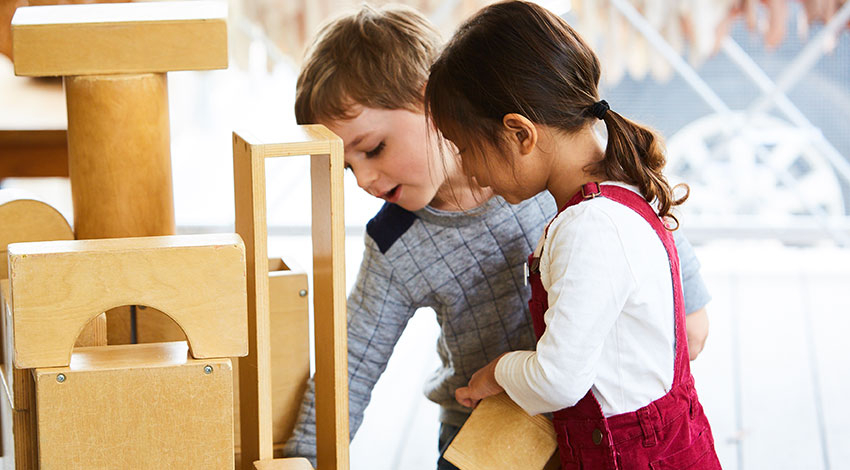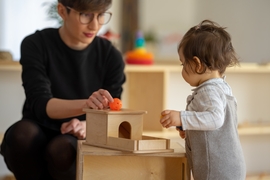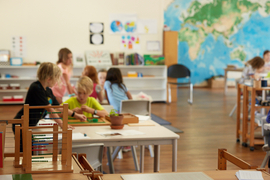
Personal development in Montessori early childhood settings revolves around the lessons of grace and courtesy, the Montessori lessons designed to ensure the needs of everyone in the setting are respected and to promote social harmony. These lessons are given to individual children, small groups or to the whole group. The lessons can be given:
- at point of need
- to prepare children for social situations they will experience in the future
- in response to children demonstrating they need more knowledge about how to manage a social situation, but at a later time so not to embarrass the children or make them feel self-conscious
Sometimes grace and courtesy lessons take the form of mini-dramas that highlight behaviour and model more effective ways of managing social encounters and interactions. Many grace and courtesy lessons are how to lessons that model for children how to, for example:
- put a chair under a table without disturbing others
- interrupt politely
- introduce one person to another.
The lessons include information about:
- how to move and use objects with care and control without causing disturbance or harm
- how to gesture appropriately, for example, indicate, smile or shake hands
- what language to use in each situation, for example, politeness terms such as please, thank you and excuse me.
Because there is only one of each set of materials in the environment, children in Montessori settings learn to take turns and consider others. In addition they learn to respect the time and space others need to complete their work undisturbed.
With these lessons, children will:
- Acquire and use appropriate social customs and manners
- Accept responsibility for actions and the consequences that follow
- Use communication and cooperation skills to share feelings and meet basic needs when interacting with others
- Identify ways in which to communicate, cooperate and care for others
- Develop respect for self and for others



